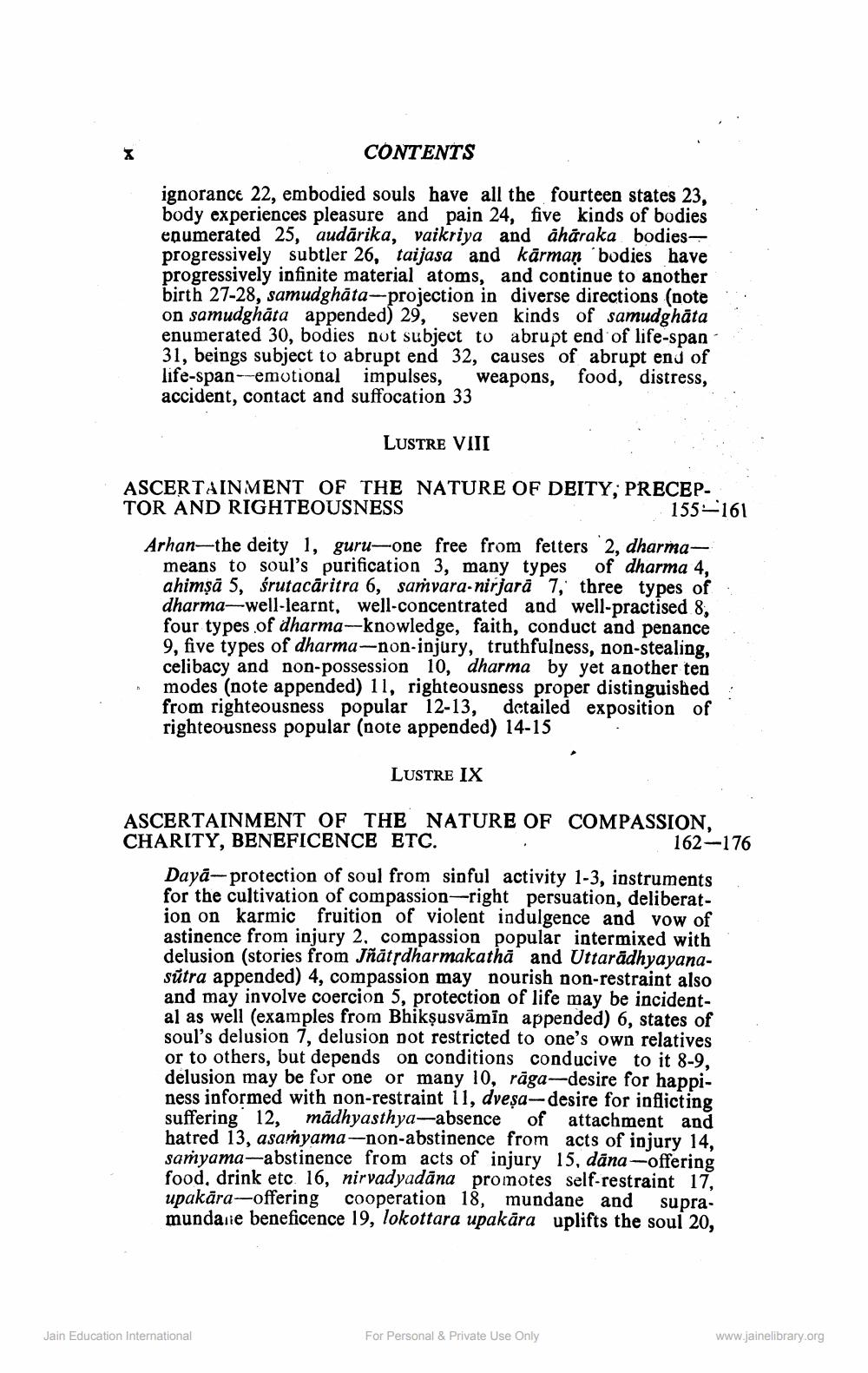________________
X
CONTENTS
ignorance 22, embodied souls have all the fourteen states 23, body experiences pleasure and pain 24, five kinds of bodies enumerated 25, audārika, vaikriya and äharaka bodiesprogressively subtler 26, taijasa and kārman bodies have progressively infinite material atoms, and continue to another birth 27-28, samudghata-projection in diverse directions (note on samudghata appended) 29, seven kinds of samudghata enumerated 30, bodies not subject to abrupt end of life-span 31, beings subject to abrupt end 32, causes of abrupt end of life-span-emotional impulses, weapons, food, distress, accident, contact and suffocation 33
LUSTRE VIII
ASCERTAINMENT OF THE NATURE OF DEITY, PRECEPTOR AND RIGHTEOUSNESS
Arhan the deity 1, guru-one free from fetters 2, dharmameans to soul's purification 3, many types of dharma 4, ahimṣā 5, śrutacaritra 6, samvara-nirjara 7, three types of dharma-well-learnt, well-concentrated and well-practised 8, four types of dharma-knowledge, faith, conduct and penance 9, five types of dharma-non-injury, truthfulness, non-stealing, celibacy and non-possession 10, dharma by yet another ten modes (note appended) 11, righteousness proper distinguished: from righteousness popular 12-13, detailed exposition of righteousness popular (note appended) 14-15
155-161
LUSTRE IX
ASCERTAINMENT OF THE NATURE OF COMPASSION, CHARITY, BENEFICENCE ETC.
Daya-protection of soul from sinful activity 1-3, instruments for the cultivation of compassion-right persuation, deliberation on karmic fruition of violent indulgence and vow of astinence from injury 2, compassion popular intermixed with delusion (stories from Jñatṛdharmakatha and Uttaradhyayanasutra appended) 4, compassion may nourish non-restraint also and may involve coercion 5, protection of life may be incidental as well (examples from Bhikṣusvamin appended) 6, states of soul's delusion 7, delusion not restricted to one's own relatives or to others, but depends on conditions conducive to it 8-9, delusion may be for one or many 10, raga-desire for happiness informed with non-restraint 11, dveṣa-desire for inflicting suffering 12, mādhyasthya-absence of attachment and hatred 13, asamyama-non-abstinence from acts of injury 14, samyama-abstinence from acts of injury 15, dana-offering food, drink etc 16, nirvadyadāna promotes self-restraint 17, upakāra-offering cooperation 18, mundane and supramundane beneficence 19, lokottara upakāra uplifts the soul 20,
Jain Education International
For Personal & Private Use Only
162-176
www.jainelibrary.org




